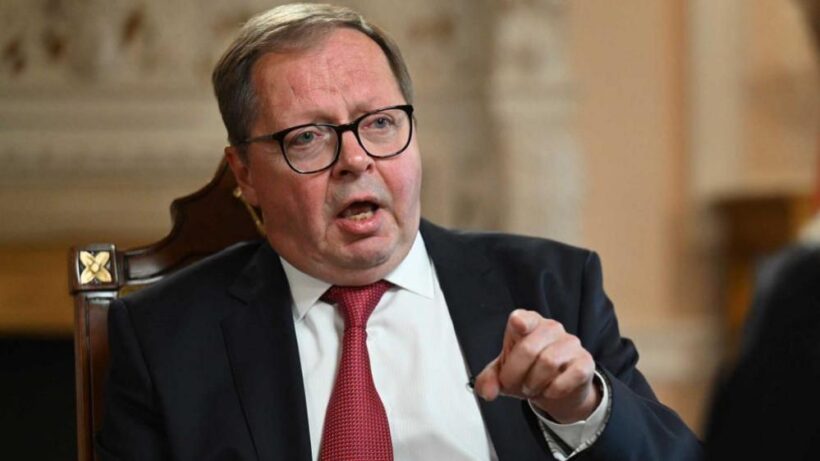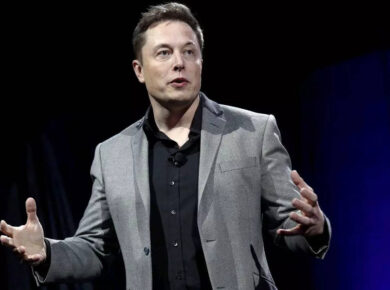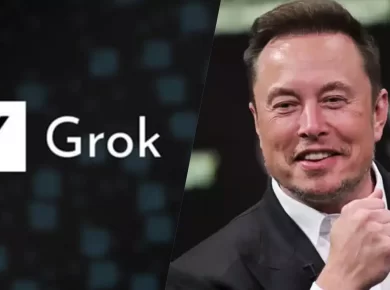🛡️ Russian Ambassador Accuses UK of Assisting Ukrainian Drone Strike: A Potential Spark Toward World War III
🎯 Introduction: Russian Ambassador’s Explosive Accusation
In a bold and unsettling development, Russian Ambassador to the UK, Andrei Kelin, has publicly accused Britain of aiding Ukraine in a massive drone strike targeting Russian military infrastructure. The Ambassador’s allegation that the UK’s military intelligence and technological support were key enablers of this attack brings new urgency to concerns that the conflict could spiral into a larger global war.
The focus keyword Russian Ambassador appears here because the situation underscores the broader geopolitical fault lines shaping today’s international relations.
✈️ Overview of the Ukrainian Drone Strike
On a recent weekend, Ukraine launched Operation Spiderweb, a well-coordinated and high-tech drone attack on Russian airbases deep inside enemy territory. The operation involved over 100 unmanned aerial vehicles (UAVs), targeting facilities that housed Russia’s strategic bombers and surveillance aircraft.
Key outcomes included:
-
Destruction of more than 40 Russian aircraft
-
Elimination of at least one AWACS (Airborne Warning and Control System) aircraft
-
Dozens of reported secondary explosions due to fuel depot and ammunition warehouse hits
-
An estimated loss of $7 billion in Russian military assets, according to President Volodymyr Zelenskyy
These unprecedented results raised immediate questions about Ukraine’s ability to execute such a sophisticated mission. Hence, Kelin’s assertion of UK involvement found fertile ground in public discourse.
🕵️ Russian Ambassador’s Accusations Against the UK
During an exclusive interview with Sky News, Russian Ambassador Andrei Kelin voiced serious allegations. He claimed that such an advanced, precise, and large-scale operation could not have been conducted without foreign intelligence and technological support.
He specifically stated:
“We know perfectly well how much London is involved… These drones cannot reach targets 1,500 kilometers away without the help of satellite guidance, encrypted communication, and British know-how.”
Kelin further suggested that Britain’s active role in training Ukrainian soldiers and sharing military intelligence—especially through MI6 and GCHQ—is an escalatory move.
These accusations are yet to be publicly substantiated with evidence, but they follow Russia’s broader narrative of blaming Western interference for Ukraine’s resilience.
📡 UK’s Military and Intelligence Involvement: What’s Known?
While the British government has a longstanding policy of not commenting on intelligence operations, it is well-documented that:
-
British instructors have trained Ukrainian troops since before 2022.
-
The UK has provided advanced drones, radar-jamming systems, and electronic warfare equipment.
-
GCHQ and Defence Intelligence units are believed to be sharing satellite imagery and signal intercepts with Ukraine.
Though this falls within the realm of military assistance, it provides circumstantial support for Russia’s claims of UK involvement in operational tactics.
⚖️ International Law & Justification for Escalation
From a diplomatic and legal perspective, any nation directly assisting an active combatant in targeting another state may be classified as a co-belligerent. Russia has hinted that continued Western support could give it the pretext for retaliatory strikes—possibly even on NATO infrastructure.
Ambassador Kelin’s warning that this is “bringing the conflict to a new level of escalation” and possibly inviting “World War III” is not mere rhetoric. It’s part of Russia’s strategic communications campaign to deter further Western involvement by amplifying fears of nuclear or global confrontation.
🗣️ Reactions from UK, Ukraine, and the US
-
UK Government: No official statement has addressed Kelin’s remarks, consistent with Whitehall’s policy of strategic ambiguity on intelligence matters.
-
Ukrainian officials have not directly commented on foreign assistance but praised the “strategic depth and courage” of their armed forces.
-
Former US President Donald Trump, speaking in a televised interview, mentioned a recent phone call with Russian President Vladimir Putin, where they discussed de-escalation but acknowledged the tension is “heating up fast.”
🌍 Implications for NATO and Global Security
If Russia were to retaliate against NATO-aligned entities like Britain, it would trigger Article 5 of the North Atlantic Treaty, potentially plunging the alliance into direct confrontation with Russia.
This leads to several global implications:
-
An arms race escalation across Europe
-
Greater surveillance and cyber warfare campaigns between Russia and the West
-
Expansion of defense budgets and military posturing in the Arctic and Black Sea
-
Heightened risk of proxy wars in other contested areas like Syria, Libya, or the Caucasus
💥 Media, Propaganda, and the War of Narratives
Russian state media has widely circulated Kelin’s claims, painting the UK as a principal antagonist. This aligns with the FSB’s (Russia’s Federal Security Service) earlier report branding Britain the “main source of global crises.”
Meanwhile, Western media has remained cautious, often dismissing the claims as unverified and emphasizing Ukraine’s growing capability to conduct autonomous strikes.
But in an era where information warfare is as impactful as missile strikes, such accusations serve a vital role in shaping global perceptions.
🧭 Strategic Forecast: What Happens Next?
Given current trajectories, expect:
-
Intensified diplomatic messaging between the UK, Russia, and the UN
-
Possible increased air defense deployments across Western Europe
-
More frequent cyber-attacks or espionage operations blamed on Russian or Western intelligence agencies
-
Ukrainian strikes becoming more frequent and deep within Russian territory
NATO allies are likely to tighten intelligence-sharing protocols while publicly denying involvement, walking a fine line to support Ukraine without triggering open conflict.
🧨 Conclusion: A Dangerous Moment in Geopolitical History
The Russian Ambassador’s claims that the UK played a direct role in the Ukrainian drone strike mark a serious uptick in rhetoric, escalation, and danger. Whether these accusations are factually grounded or part of a strategic blame game, their impact on diplomatic relations and international security cannot be understated.
With the fog of war thickening and the stakes growing exponentially, the world watches nervously, wondering if the next drone strike will be met not with silence—but with global retaliation.
🕊️ Final Thoughts: Can Diplomacy Still Prevail?
Despite the aggressive posturing, diplomatic channels remain open. Nations must now decide whether to de-escalate tensions through transparent dialogue, or risk a catastrophic slip into World War III.
For more updates, explore the Current News. Feel free to share your thoughts and comments.
If you’re passionate about building a successful blogging website, check out this helpful guide at Coding Tag – How to Start a Successful Blog. It offers practical steps and expert tips to kickstart your blogging journey!






